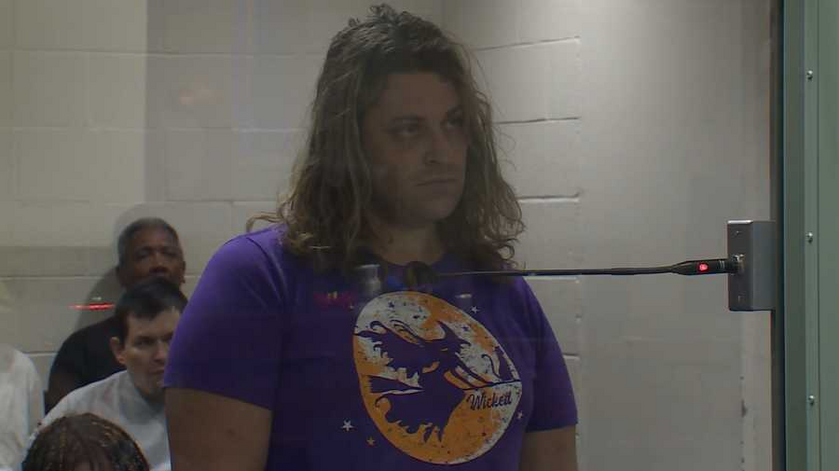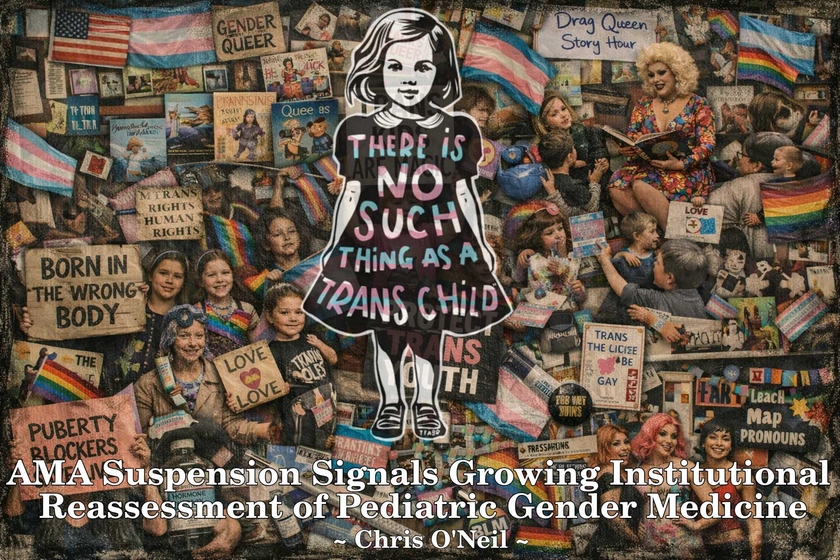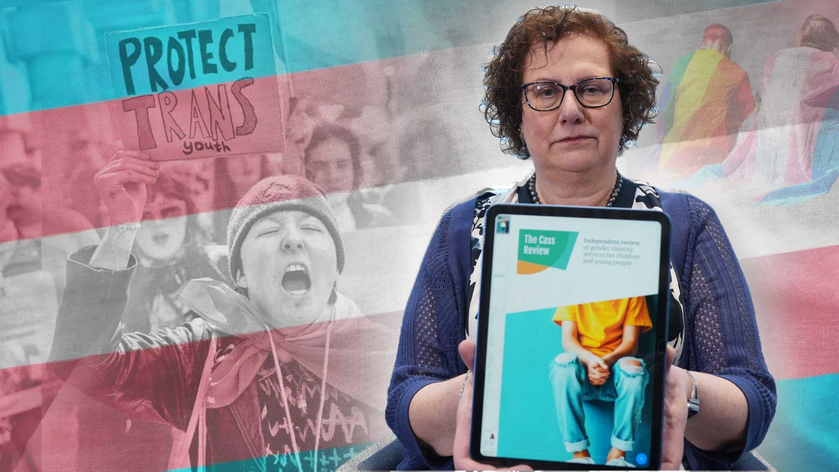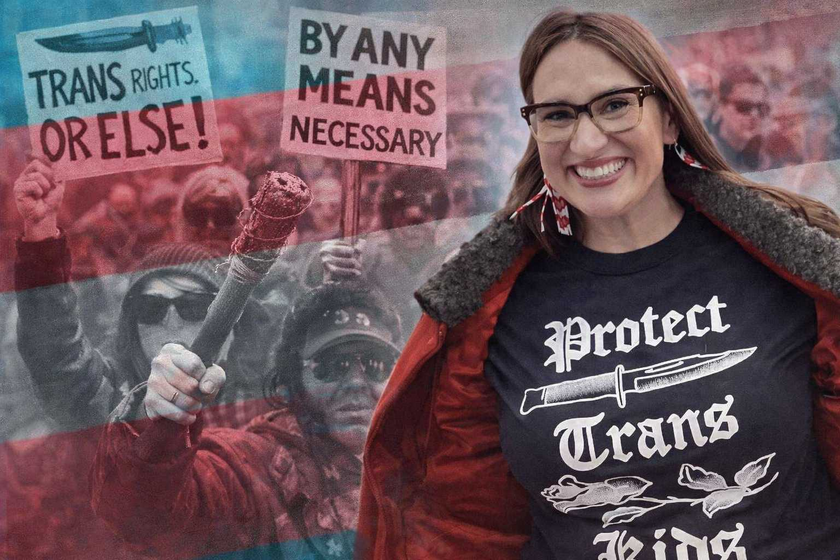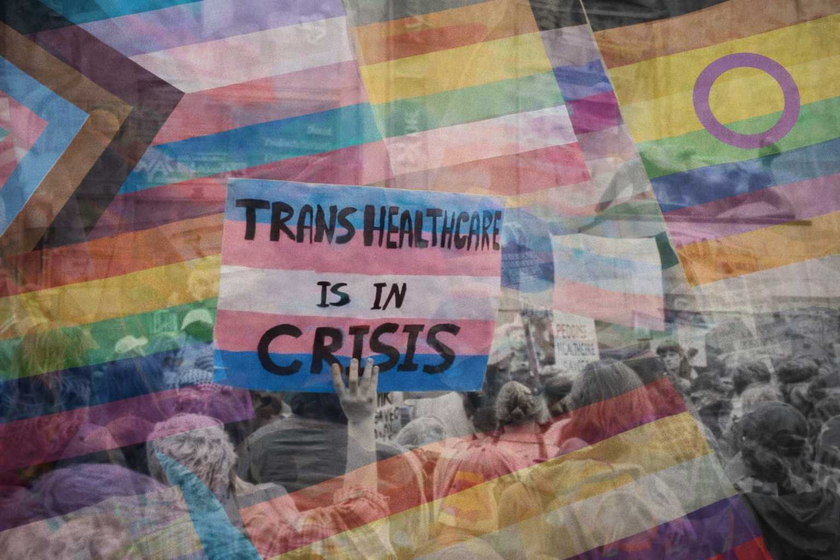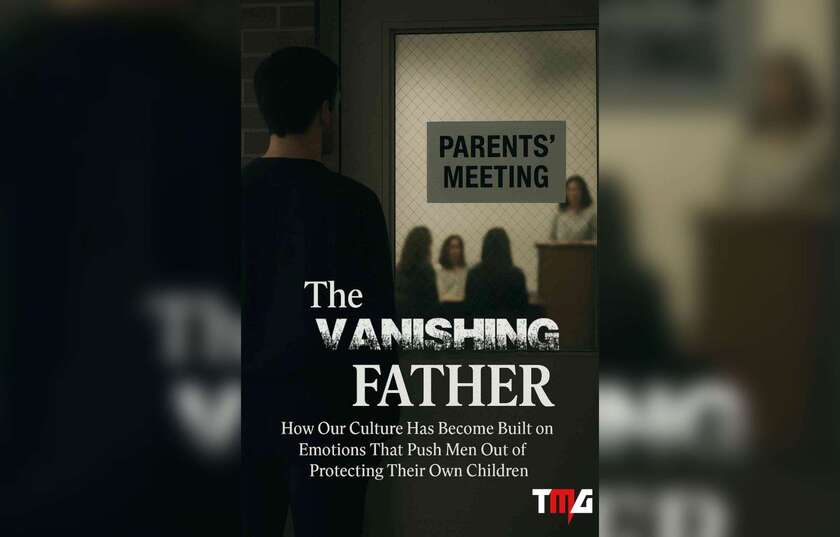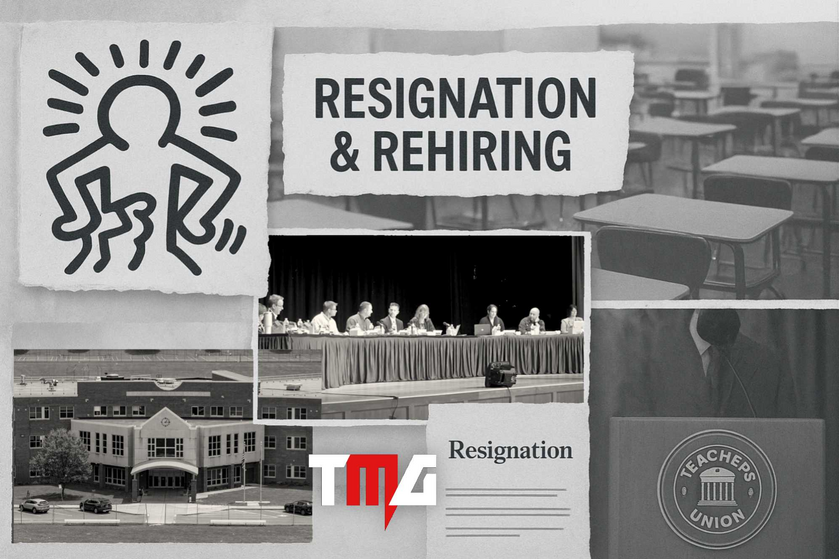By Chris O'Neil
Trash Media Group
When officers with the Las Vegas Metropolitan Police Department entered a mobile home on November 6, 2024, to perform a welfare check, they likely had no idea what horror they were about to uncover. Inside a locked chest freezer, they discovered the body of 68-year-old Monique Gilbertson, missing for weeks and decomposing in silence. Present in the home was 36-year-old Daniel Roush, also known as Jazlynn Roush, a trans-identifying individual who had been living with Gilbertson despite allegedly being told to leave weeks prior.
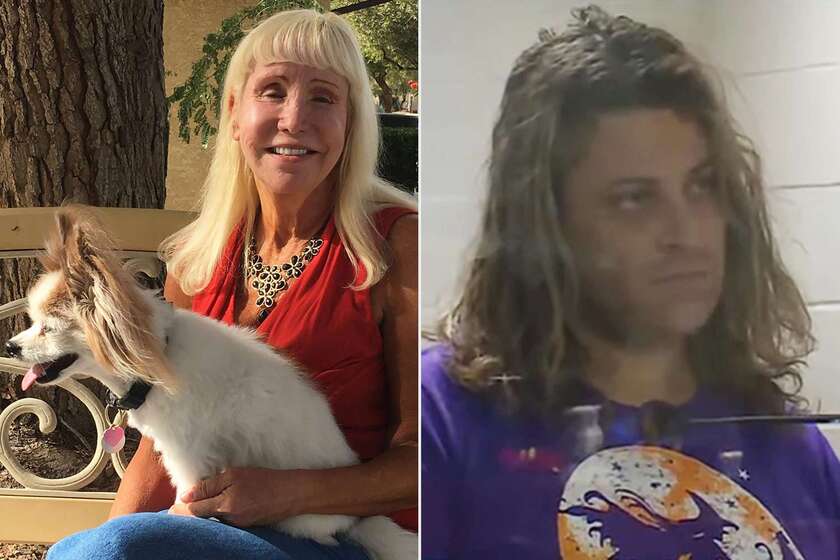
Roush was arrested on the spot and has since been charged with open murder, burglary, and a range of drug-related offenses. His wife, Gina Lopez, was also later indicted for her alleged role in providing Gilbertson with fentanyl-laced drugs. While the gruesome nature of the crime and the exploitation of a vulnerable woman deserve widespread attention on their own, the case raises another deeply uncomfortable question: Are we, as a society, allowing ideology and politics to interfere with how we assess and treat mental illness?
This article does not seek to vilify individuals based on gender identity. It seeks to ask a harder question: In our push to affirm identity, are we failing to detect or treat underlying psychological disturbances that may manifest as dangerous behavior?
Mental health professionals and institutions are increasingly facing pressure to affirm gender identity without fully exploring the broader psychological context of the individual. This has led some experts to raise concerns about missed diagnoses, particularly in cases where symptoms of gender dysphoria may overlap with, mask, or even stem from deeper conditions such as personality disorders, post-traumatic stress, or substance dependency.
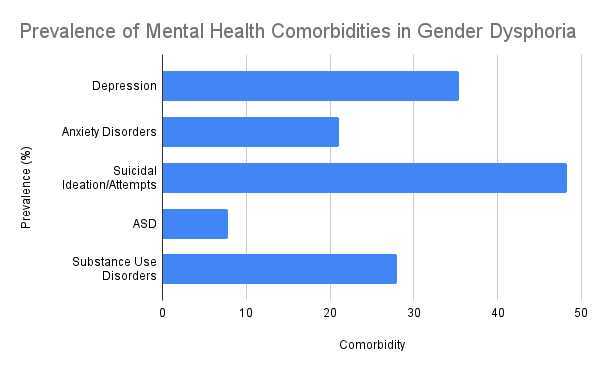
In Daniel Roush's case, a troubling pattern emerges. He had a history of instability, drug use, and criminal behavior. He lived transiently, relied on the charity of others, and was reportedly asked to leave Gilbertson's home after behavioral issues. Yet he remained there—even as she lay dead in a freezer just feet away. Roush’s behavior suggests more than simple callousness; it points to profound psychological disturbance. Was that disturbance ever addressed, or was it overlooked in favor of affirming identity alone?
Research has shown that individuals experiencing gender dysphoria often suffer from comorbid mental health issues such as depression, anxiety, and dissociative disorders. These must be considered in treatment, not avoided due to fear of appearing discriminatory. But in today’s polarized climate, mental health professionals may hesitate to ask hard questions.
There is a legitimate concern in clinical spaces: challenging or scrutinizing someone’s self-identified gender risks being labeled transphobic. That fear—whether political, institutional, or professional—can have real consequences when individuals in need of comprehensive mental health treatment slip through the cracks. It is not transphobic to say that some people may need more than affirmation; it is simply honest clinical care.
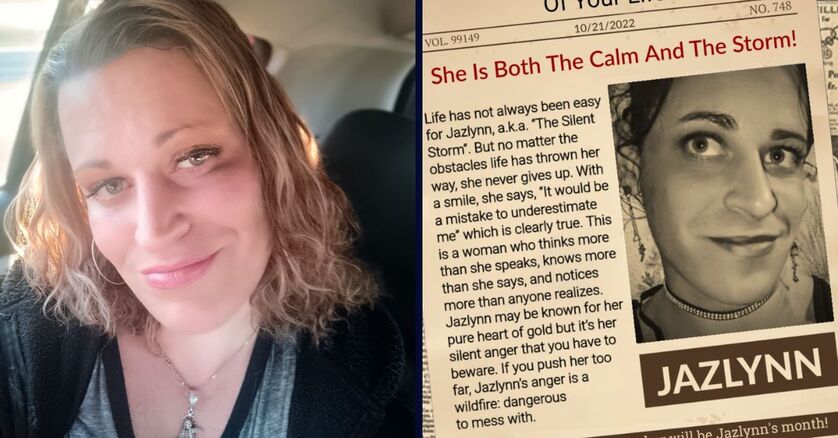
Daniel Roush is not the first trans-identifying individual involved in a high-profile act of violence where mental illness played a key role. The 2023 Nashville school shooting, carried out by Audrey Hale, who identified as transgender, also exposed a reluctance among some institutions to interrogate the mental health dimensions of identity. These cases are rare, but when they occur, they illuminate the broader systemic failures to identify, treat, and manage dangerous behaviors.
Another controversial and disturbing case involves Christine Weston Chandler, better known online as "Chris Chan." Chandler, who identifies as a trans woman, was arrested in 2021 for allegedly engaging in incestuous sexual abuse against her elderly mother. The case shocked the internet not only for the severity of the crime but also for the years of documented mental health issues that were seemingly ignored or mishandled by both legal and medical institutions. Like Roush and Hale, Chandler's actions cannot be solely attributed to identity—but they do illustrate the dangerous consequences of failing to confront serious psychiatric instability when it coexists with politicized topics like gender identity.
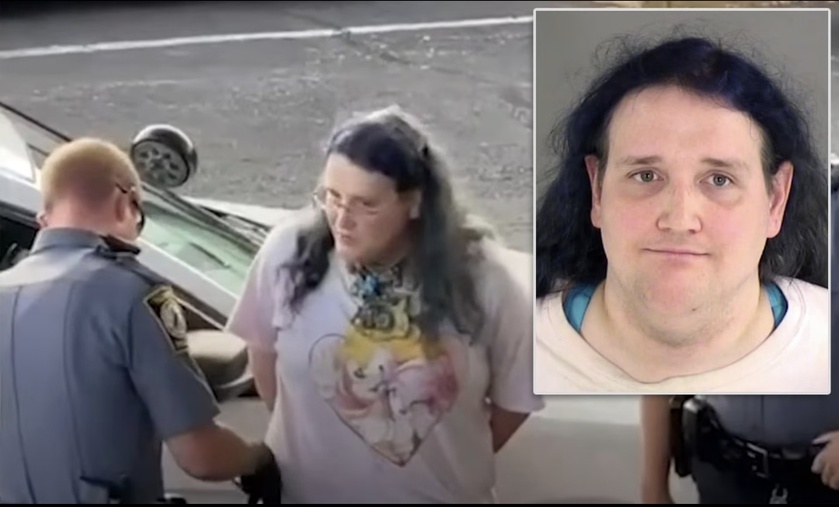
This isn’t a call to pathologize all transgender individuals—far from it. But if our systems cannot distinguish between sincere identity exploration and psychiatric distress, we will continue to miss the warning signs.
The murder of Monique Gilbertson was horrific. But it also wasn’t inevitable. Systems failed—systems that could have stepped in earlier if there had been the political will, clinical courage, or societal permission to say: something is wrong here.
True mental health advocacy means acknowledging complexity. It means treating people as whole beings—not just identities. And it means being willing to confront uncomfortable truths before another tragedy unfolds in silence, behind another locked door.
Chris O'Neil is an investigative journalist and editor of Trash Media Group. He reports on public records, government accountability, and failures of institutional systems.
